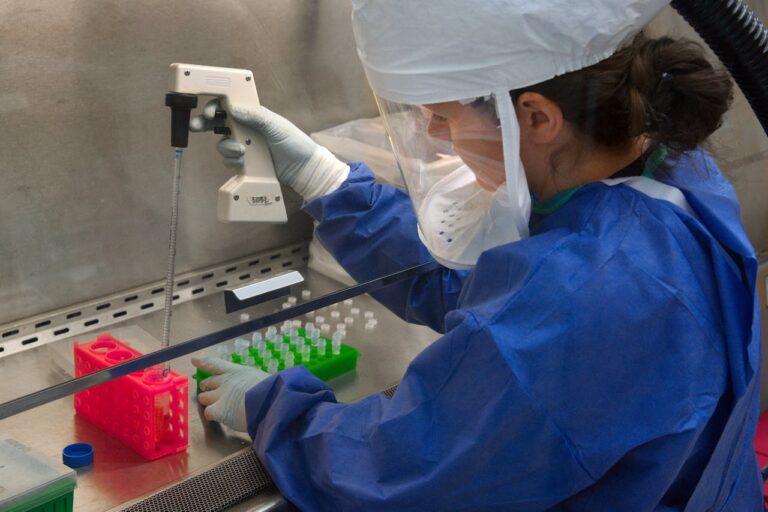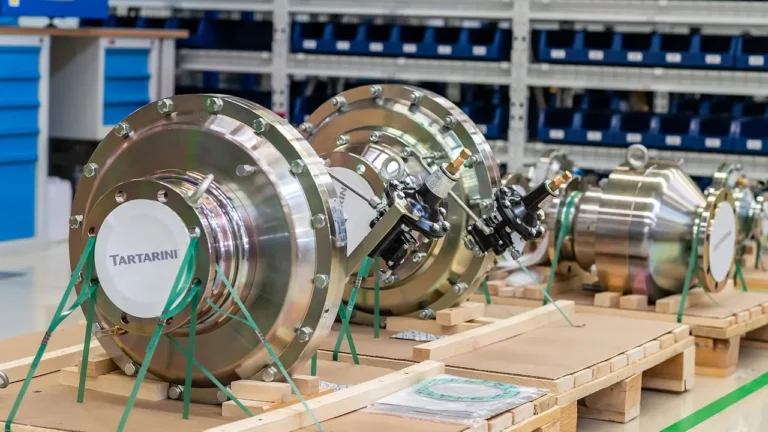
Birch Biosciences and NREL Forge Strategic Licensing Pact to Accelerate Enzymatic Plastic Recycling Innovation
Birch Biosciences, an emerging leader in the field of enzymatic recycling technologies powered by artificial intelligence, has announced a significant step in its commercialization roadmap by entering into a global patent license agreement with the U.S. Department of Energy’s National Renewable Energy Laboratory (NREL). The agreement will allow Birch Biosciences to utilize and commercialize an innovative downstream chemical processing technology developed by NREL researchers that is designed to break down polyethylene terephthalate (PET)—one of the world’s most widely used plastics—into its original chemical building blocks.
This novel technology, which enables the enzymatic deconstruction of PET, allows for the efficient recovery of high-value monomers. These monomers can then be repolymerized to produce virgin-quality PET, suitable for creating new plastic products with 100% recycled content. The significance of this breakthrough lies in its potential to overcome the limitations of conventional recycling methods, making it possible to repeatedly recycle plastic waste without compromising quality.
A Strategic Synergy for Sustainable Innovation
The newly announced licensing agreement is a milestone that merges groundbreaking government-funded scientific innovation with a nimble, forward-thinking private sector startup. Birch Biosciences plans to incorporate NREL’s patented downstream chemical process into its proprietary biocatalytic platform, which uses advanced AI models to optimize enzymes that target and break down PET molecules.
“This licensing agreement represents a significant step forward in our mission to enable a circular plastic economy using biological solutions,” said Dr. Johan Kers, co-founder and CEO of Birch Biosciences. “By integrating NREL’s novel chemistry with our enzymatic recycling technology, we aim to scale up an efficient and cost-effective recycling process that can help solve the plastic waste problem on a global scale.”
From NREL’s perspective, the collaboration is a testament to the lab’s mission of enabling real-world applications of its research through strategic public-private partnerships. “NREL is pleased to partner with Birch Biosciences to bring this technology to market,” noted Dr. Gregg Beckham, Senior Research Fellow at NREL and a key figure in developing the enzymatic recycling process. “This is a great example of how national laboratories and industry can collaborate to address plastics recycling challenges with real-world impact.”
Addressing a Global Plastic Crisis

The timing of this partnership could not be more critical. The world is currently grappling with an escalating plastic waste crisis. According to industry estimates, more than 400 million metric tons of plastic are produced annually across the globe. Of that, only about 9% is recycled, while the rest ends up in landfills, incinerators, or polluting the natural environment. PET, commonly used in beverage bottles, food containers, and synthetic fibers, represents a significant portion of this waste.
Traditional recycling methods—mechanical recycling and thermal chemical recycling—have numerous limitations. Mechanical recycling can only be repeated a few times before the material degrades, resulting in lower-quality plastic each time. Chemical recycling processes, while more effective in breaking down plastics into monomers, typically require high temperatures and harsh solvents that make them energy-intensive, expensive, and potentially harmful to the environment.
In contrast, enzymatic recycling offers a revolutionary alternative. By using engineered enzymes to break down polymers at a molecular level under mild conditions, enzymatic recycling avoids the energy demands and pollutant risks of traditional methods. Moreover, it produces monomers that are identical to their virgin counterparts, allowing for the creation of entirely new plastic products without loss in performance or quality.
NREL’s chemical process specifically enhances the enzymatic approach by providing a highly efficient method for separating and recovering the PET monomers after depolymerization. When integrated with Birch Biosciences’ enzyme discovery and optimization technologies, this process represents a major step toward achieving a truly circular, sustainable recycling solution.
The Power of AI in Biocatalysis
A critical component of Birch Biosciences’ value proposition is its use of artificial intelligence to guide the discovery and engineering of enzymes. Using computational modeling and machine learning algorithms, the company can accelerate the identification of enzyme variants with superior activity, stability, and specificity toward PET degradation.
This capability allows Birch to iterate rapidly on enzyme design, reducing the time and cost associated with traditional trial-and-error methods. The end result is a platform that can deliver biocatalysts capable of breaking down various forms of post-consumer PET, including food-grade containers and textile fibers, into constituent monomers in a matter of hours.
“The integration of AI into enzyme development is a game-changer,” said Dr. Kers. “It allows us to tailor our biocatalytic processes to handle the complex and varied PET waste streams found in the real world, rather than just lab-grade samples.”
Bridging Research and Commercialization
The collaboration between Birch Biosciences and NREL exemplifies how advanced scientific research can be translated into commercially viable technologies through strategic licensing. NREL’s role as one of the U.S. Department of Energy’s premier research facilities includes not only developing innovative clean energy and sustainability solutions but also actively engaging with private industry to ensure that these technologies reach the market where they can make the most difference.
NREL has invested significant effort in the field of plastics recycling over the past decade, building a robust portfolio of research on polymer science, enzyme engineering, and process integration. Dr. Beckham, who leads NREL’s BOTTLE (Bio-Optimized Technologies to keep Thermoplastics out of Landfills and the Environment) Consortium, has been at the forefront of this effort, working to create a future where all plastics can be reused, remade, or safely returned to the environment.
“The ultimate goal is to create a closed-loop plastic economy where materials are continuously recycled without environmental leakage,” Dr. Beckham explained. “Partnering with innovative companies like Birch Biosciences enables us to move from laboratory success to commercial impact much faster.”
A Shared Vision for Circularity
Both organizations are united by a shared vision: the establishment of a circular economy for plastics in which materials are reused repeatedly without degradation or waste. This vision aligns with broader global sustainability goals and the increasing demand from consumers, governments, and industry stakeholders for solutions to plastic pollution.
In the coming months, Birch Biosciences plans to scale up pilot demonstrations of its integrated recycling process and initiate partnerships with companies across the packaging, textile, and recycling industries. The company is also exploring strategic collaborations to deploy its technology at waste management facilities, recycling centers, and manufacturing plants.
“This is about more than just licensing a piece of technology,” said Dr. Kers. “It’s about building a new industrial ecosystem that can transform how we think about plastic waste—turning it from an environmental liability into a valuable resource.”
As the world shifts toward more sustainable production and consumption models, innovations like those enabled by the Birch-NREL agreement will be essential. The commercialization of enzymatic plastic recycling represents a promising path forward, offering the potential to significantly reduce the environmental footprint of plastics while creating economic opportunities in the green technology sector.
With this licensing agreement, Birch Biosciences is poised to be at the forefront of that transformation, driving the next generation of recycling technologies that can deliver both environmental and economic returns.




